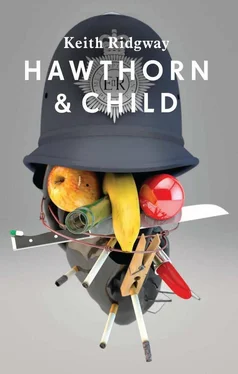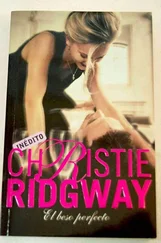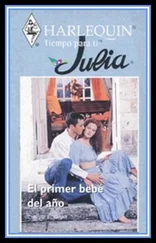She was trying to finish her history essay but Beth kept on popping up on MSN asking her stupid questions. She didn’t answer her for a while and then set her status to away and tried to think about why Churchill lost the election after the war.
There were some artists that she couldn’t really understand. She could see that they had left her lots of space, but she didn’t know what to fill it with. Sometimes, if they were not very well known or respected artists she decided that they just weren’t very good — that they were faking it and they didn’t know what they were doing really. But if they were famous and supposed to be amazing then they just made her feel stupid. It was easier the further back in history you went, because art became more realist and you could just like something or not like it. More or less. Though sometimes when you didn’t like something and then read about it, or read about the artist, you could start to see things you didn’t notice before, or you could feel things differently, and start to like it. Unless you went back to when everything was sort of cartoonish, like Fra Angelico, and then she didn’t really understand what was going on there either, because it just looked so sloppy and bad. But apparently it was amazing.
On her laptop the wallpaper was a self portrait by Frida Kahlo. She liked it. She thought it was sort of funny, because it looked so serious. She liked this woman. She had seen a film about her. That wasn’t why she liked her though. She liked the way she made people fit her world, and be a bit ugly, but still make them beautiful. And funny. There were not enough women artists in history. She paid them extra attention when she came across them. She wondered if that was fair, and then wondered why she wondered that. It was not a competition. She was not a judge. So she decided she could pay them more attention if she wanted.
On her wall she had some small postcards lined up in a grid. There were quite a few now. It was useless to look at any one of them really, because the prints were so small, and you could get only the vaguest sort of idea of what they were really like. She had seen some of them for real. But there were thirty-eight now, in seven rows of five, and one row of three at the top. Two more and then she’d start another grid. Her dad had sent most of them. Or just given them to her. But there were ones from her gran as well, and from friends, and her mother had picked up a few when she’d gone to the National Gallery in Edinburgh on her weekend away. She suspected her mother had just gone into the shop.
The grid was really neatly spaced and aligned. She didn’t like that now. She wished it was more disorganized. She’d made it look like a chart. But she’d decided to leave it as it was and make the next one messy in contrast. She thought that would be interesting. It had started by accident, when she just stuck her first postcard — of the Thames, by Turner — on the wall above her desk. It was only when she’d added the third that she lined them up properly. And then she told people she liked art postcards. So more came. She’d only been doing it about a year. She wondered how long it would take to fill all the empty space on all the walls.
She had a Francis Bacon exhibition poster that her dad had bought for her. She had a really nice print of a young Rembrandt self-portrait where he looked mad and sort of handsome. She also had a poster of Van Gogh’s Starry Night , which she hated, but which she had to leave there, at least for now, because her mother had bought it for her. She didn’t hate it. But it was so clichéd that she couldn’t help deciding not to like it. Her favourite print was the one over her bed. It was Judith Slaying Holofernes by Artemisia Gentileschi. Her mother didn’t like it at all. She said it would give her night-mares. All that blood. But it didn’t. It was really violent, but it was like that wasn’t the point. The point was something else. It was the way Judith gritted her teeth. It was good.
Her mother was calling her. She shouted back. She opened the drawer and looked at her phone. OK. No new texts from her dad. She read the last one. He was panicking about the summer holidays. It wasn’t even Easter yet. If they talked to each other and left her out of it everything would be sorted in about ten seconds. She hated clichés. Except maybe it would be a cliché if they got on really well and were all mature all the time and made sure she never felt like a football or whatever, and were super civilized and cool. That would be another cliché. At least it would be a more pleasant cliché. Maybe it wouldn’t. Maybe it wouldn’t because it would feel forced and unnatural, whereas at least this was them being honest.
— Is he annoying you?
— What?
Her mother was in the doorway.
— Your father.
— No. Why?
— You’re sighing at your phone. You always sigh at your phone when he’s texting you.
— I don’t. It’s not him. It’s Michele.
— Why are you sighing at Michele?
— Oh, she thinks she’s pregnant. Again.
Her mother stared at her for a second. And relaxed.
— Jesus, Cath, don’t do that. It’s not funny. I am … God almighty. Just don’t.
She smiled. Her mother stuck out a hand.
— Washing.
— No, I put it all in the basket.
— What’s that then?
There was a pair of socks on the bed.
— They’re clean. They’re today’s.
— All right. Come down for a cuppa.
— I will in a minute. I’m doing an essay.
— Well I’m putting the kettle on. Come down and have a cuppa with me. I’m bored. Do you want to go to the shops?
— No. I’ll be down in a minute.
She waited until she was alone again and then replied to her father. Yes. No. I did. There is. It will be all right. Shut up. She knew that if something terrible happened to her, her parents would have to meet in casualty or the morgue or something and they would break down and cry and hug each other and all the dumb fighting would be forgotten and they would love each other again, because she was dead or a vegetable and that was all they had. And then she imagined herself thinking that if she really loved them she’d kill herself and she laughed. Then she thought that if something terrible happened they would blame each other and spend the rest of their lives tied together by hatred and her death.
Everything was a cliché.
Sometimes when she was out with her dad and they were talking with other people, he would refer to her mum as ‘my ex-wife’. One day she asked him if he ever referred to her as his ex-daughter. They had a row. But since then he referred to her mum as ‘Catherine’s mother’. Which made it sound like her fault.
Churchill lost the post-war election because people were tired. When you have a fire in your house you want the fire brigade to come. When the fire is out you want them to leave. She wrote this in her essay and was really pleased with it. She thought it was a brilliant analogy. But when she got it back she’d been given 56 % and there were no comments at all, and the bit where she said that wasn’t even ticked or marked. She didn’t know why she bothered.
He waited for her sometimes in a coffee shop near her school. She’d get a text at exactly 3.30 saying ‘fancy a quick coffee?’ even though she never actually had a coffee, she had one of their herbal teas, or sometimes a smoothie. Sometimes she couldn’t meet him because she had something on, or was going somewhere with Beth or Michele. Sometimes she pretended she had something on. Well, just once or twice. Usually it was fun to see him. He was usually in a good mood. He’d tell her funny things about work. About people at work or people he’d met. He’d tell her about gangsters. Ridiculous cartoon gangsters with stupid names — and it always took her ages to realize that he was making them up. Sometimes he’d get a call and have to leave in a hurry. She liked that. He’d say What into his phone and then listen and grunt or say yes or no , and then he’d sigh and say all right ten minutes , and he’d stand up and kiss her on the forehead and whisper that he loved her and he’d be gone.
Читать дальше












